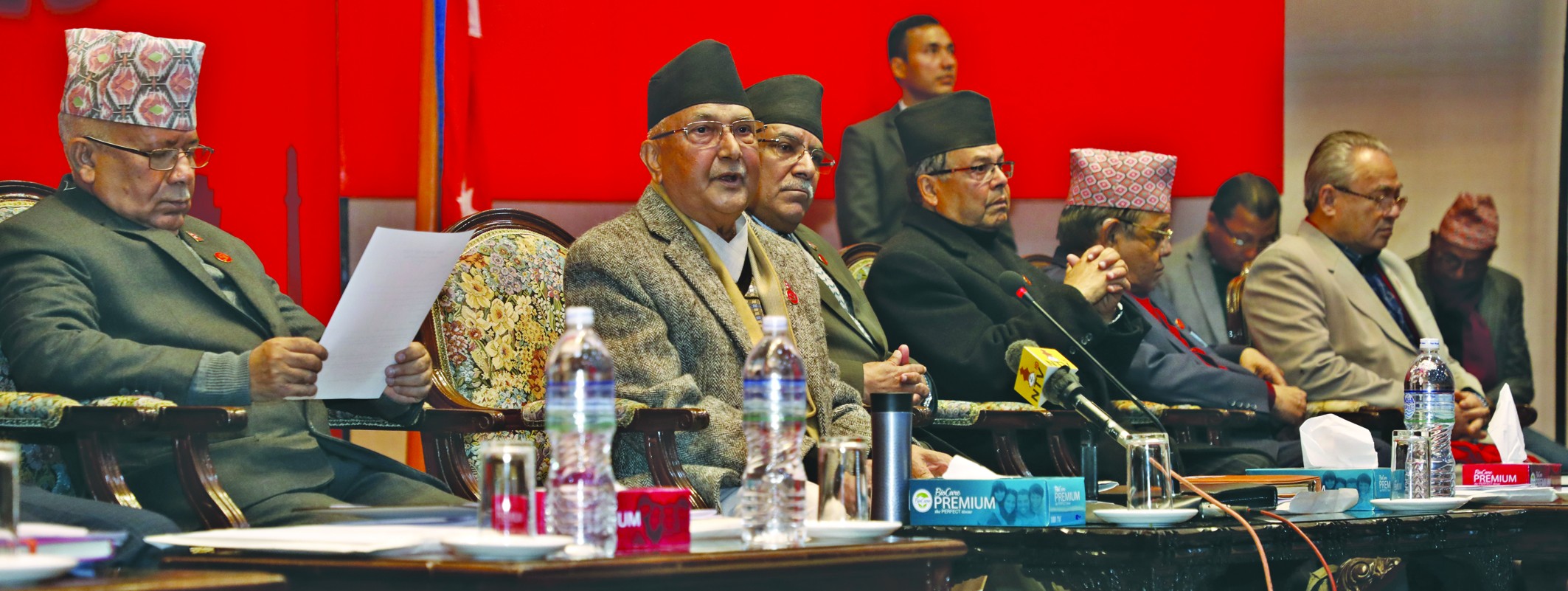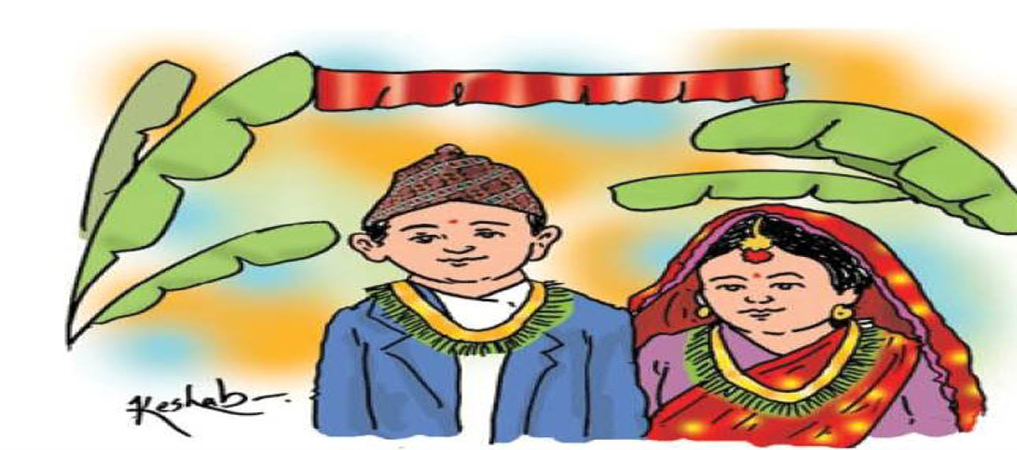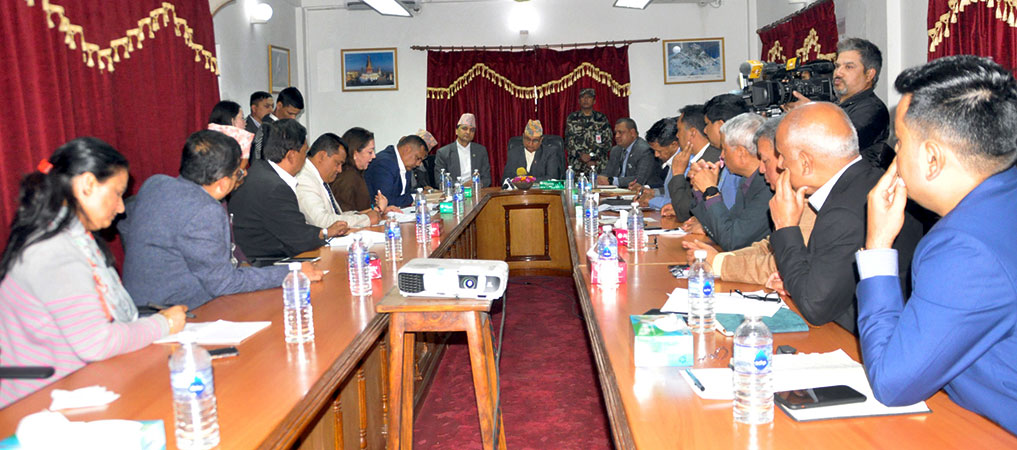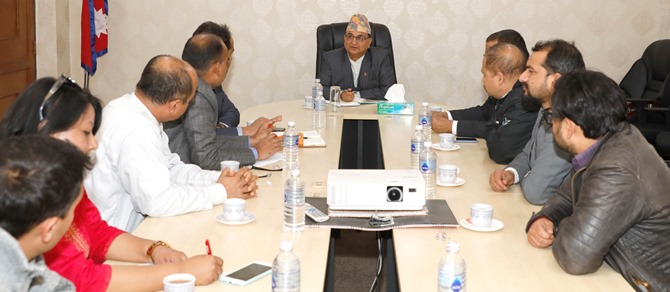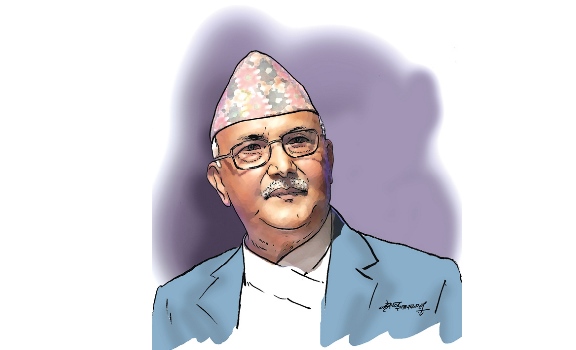Childless couples faced with social consequences

By Arpana Adhikari
Kathmandu, Feb.1: Infertility is universally devastating, but the social consequences are perhaps the most severe in a country like Nepal where having children is considered culturally an essential aspect of a couple’s life.
In many ways, infertility in Nepal is stressful that affects social and marital life of a couple. For a couple, not having children is like a personal tragedy and a curse. However, these are women who often have to bear the blame for the unwanted situation.
Being childless is emotionally and physically distressing for Rajita, a 35 year-old woman of Sukedhara,
Rajita and her husband, who had tied nuptial knot 10 years ago, had even opted IVF treatment twice but in vain.
“I have heard people backbiting about my infertility. They do not even hesitate to call me ‘Banjhi’ (a barren woman). This kills me from inside,” she said.
“Despite knowing that I cannot conceive, my in-laws keep on exerting pressure on me. I always fear that my in-laws would force my husband to marry another woman.”
A couple of Battar Nuwakot, in a condition of anonymity shared their ordeal of being childless.
The couple tied nuptial knot some 15 years ago. After two years of their marriage, husband went for foreign employment and returned home in five years. He invested his earning to construct a house.
But the couple was later compelled to leave the house, as their parents excluded them from the ancestral property.
“Because my brother has two sons, my parents transferred all their property in his name. They believe that after our death, there will be no one to take care of the property,” he said.
A 35-year-old man of Sankhu said it was difficult for a childless couple to live in the Nepali society. “Some of my friends do not even hesitate to call me ‘Napunshank’ (impotent).
Lately, increasing incidents of infertility among married couples have become visible in the country. However, the exact rate of infertility in the nation is still unknown.
Lubha Raj Neupane, Executive Director of Women Rehabilitation Center (WOREC), said in the context of Nepal, the available data shows that 7.4 per cent of women have infertility problem.
Experts claim that changing lifestyle, smoking, consumption of illicit drugs, passive lifestyle, exposure to pesticides, advanced marital age, stress and obesity are major factors for growing infertility among both men and women.
According to a study recently conducted at Dang and Udayapur districts by WOREC, fertility is considered an important part of women in Nepal. Motherhood is regarded as a boon. Once a woman gets married, she is expected to have babies within a year or couple of years.
“Having a child is considered as a full sign of womanhood. If woman is not able to produce offspring, she is mocked as a barren woman using local terms like Banjhi, Thari and Aputali ,” the report stated.
As per the report, some childless women in Nepal are devoid of all the rights as human and are at risk of different forms of violence and abuses by her family members and society.
Infertility can lead to severe depression, worrying, stress,
sadness, isolation and feeling of loneliness to the couple affecting women more than men, read the report.
“Psychosomatic illness of women needs to be treated first because it can impact the fertility of women. We should take forward the preventive and social dimensions to deal with infertility,” said Dr. Laxmi Tamang, President of Midwifery Society of Nepal.
Sharing the findings of another study carried out in 2018, Ira Sharma, president of Bhudhanilkantha Chapter of Business Professional Women Nepal, said men are also found victimised because of infertility.
Further, infertility is a pretext of polygamy in all ethnicities whereas social stigma of infertility is high among Brahmins and Chhetris, she added.
“Depression and suicidal attempts are high among the infertile women,” she said.
Because of the cultural perception that infertility is the problem of women alone, violence against women is more common in Nepali society, said Dr. Renu Adhikari, founder of WOREC.
“Infertility has become a concern worldwide and better preparedness is required for the future in the issue of fertility and sub-fertility,” she added.
Similarly, some childless couples are found opting traditional and religious methods to treat their infertility, the report showed.
One of the respondents from Dang shared that she was planning to visit a temple where there is a pond.
“If a childless woman takes bath in the pond and catches a frog before the sunrise, then god will gift the couple with a child,” she said.
“Infertility is a sensitive issue which remained unaddressed till date and was not discussed among the parliamentarians,” said Mana Kumari GC, member of the Parliament-Education and Health Committee.
Issue of infertility is overlooked and is limited in a narrow space, said Rekha Kumari Jha, another member of the Parliament adding, “I am from the Terai region and I have seen many cases of child marriage and those couple who could not conceive within 1-2 years of their marriage they are considered infertile.”
Infertility has various dimensions like bio-medical, social, science and technology. The issue of infertility should not be left alone with bio-medical treatment, rather it should go clubbing with social dimension too, said Dr. Saroj Dhital, Senior Consultant Surgeon.
Infertility is an emerging public health issues in Nepal. The government should formulate policy to prevent infertility but its treatment should not be commercialised, said Dr. Sharad Onta, People Health Movement Coordinator.
The Safe Motherhood Act 2075 has also incorporated the issue of infertility as one of the reproductive morbidities. The current policies have a provision that the violence against women on the basis of infertility is a crime.
The act has also provisions of facility to find out the causes of infertility, diagnosis and treatments for infertility. However, there is mechanism to regulate the implementation of the provisions.
Recent News

Do not make expressions casting dout on election: EC
14 Apr, 2022
CM Bhatta says may New Year 2079 BS inspire positive thinking
14 Apr, 2022
Three new cases, 44 recoveries in 24 hours
14 Apr, 2022
689 climbers of 84 teams so far acquire permits for climbing various peaks this spring season
14 Apr, 2022
How the rising cost of living crisis is impacting Nepal
14 Apr, 2022
US military confirms an interstellar meteor collided with Earth
14 Apr, 2022
Valneva Covid vaccine approved for use in UK
14 Apr, 2022
Chair Prachanda highlights need of unity among Maoist, Communist forces
14 Apr, 2022
Ranbir Kapoor and Alia Bhatt: Bollywood toasts star couple on wedding
14 Apr, 2022
President Bhandari confers decorations (Photo Feature)
14 Apr, 2022


